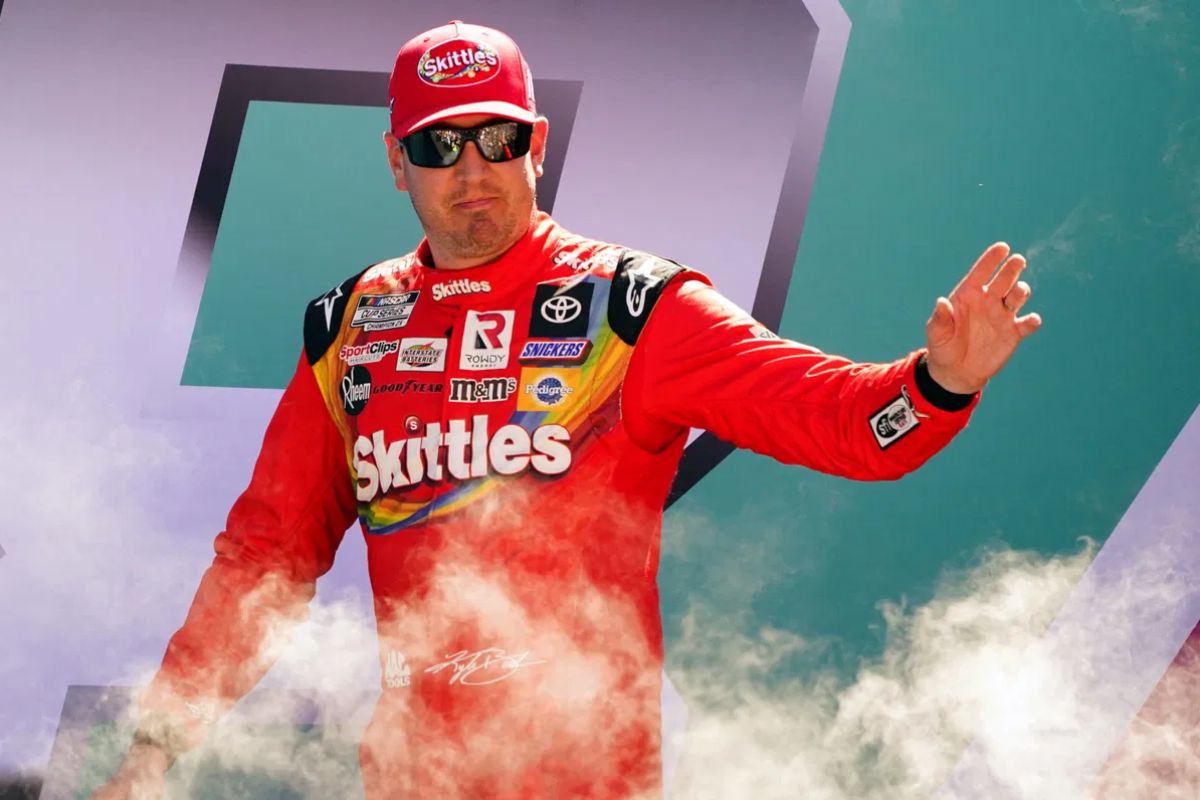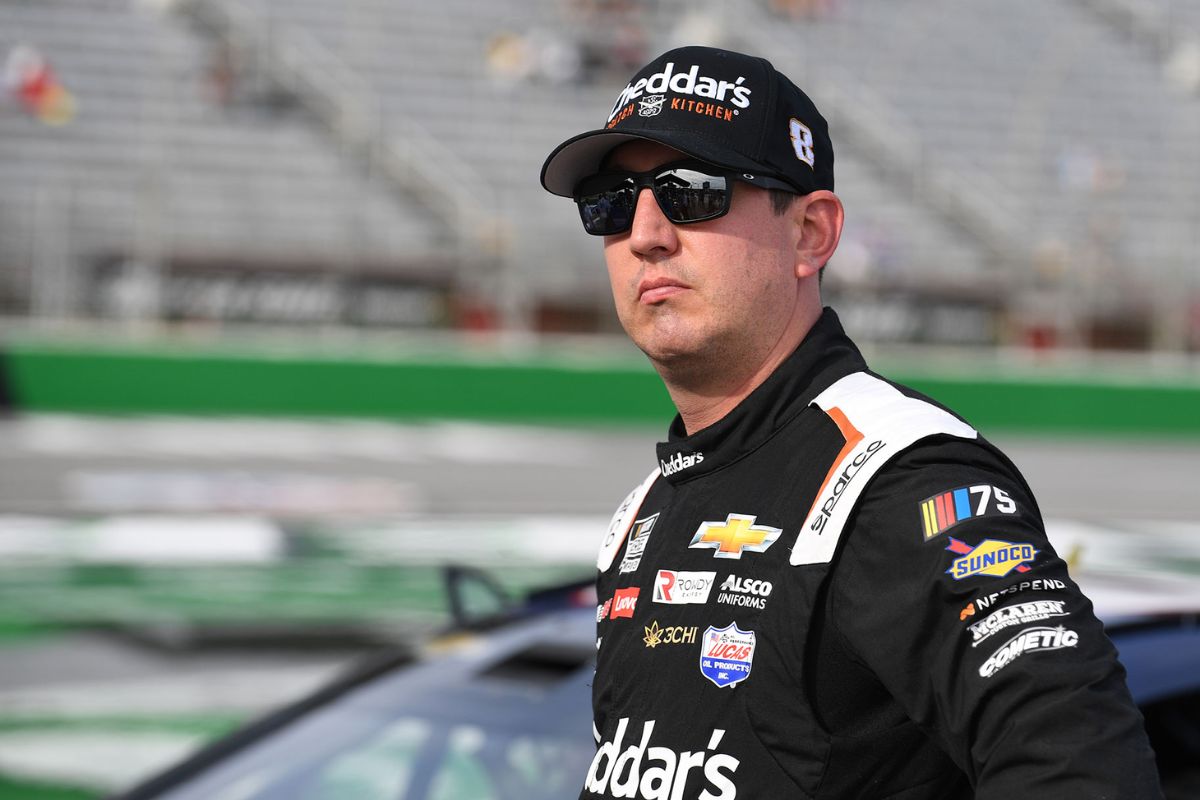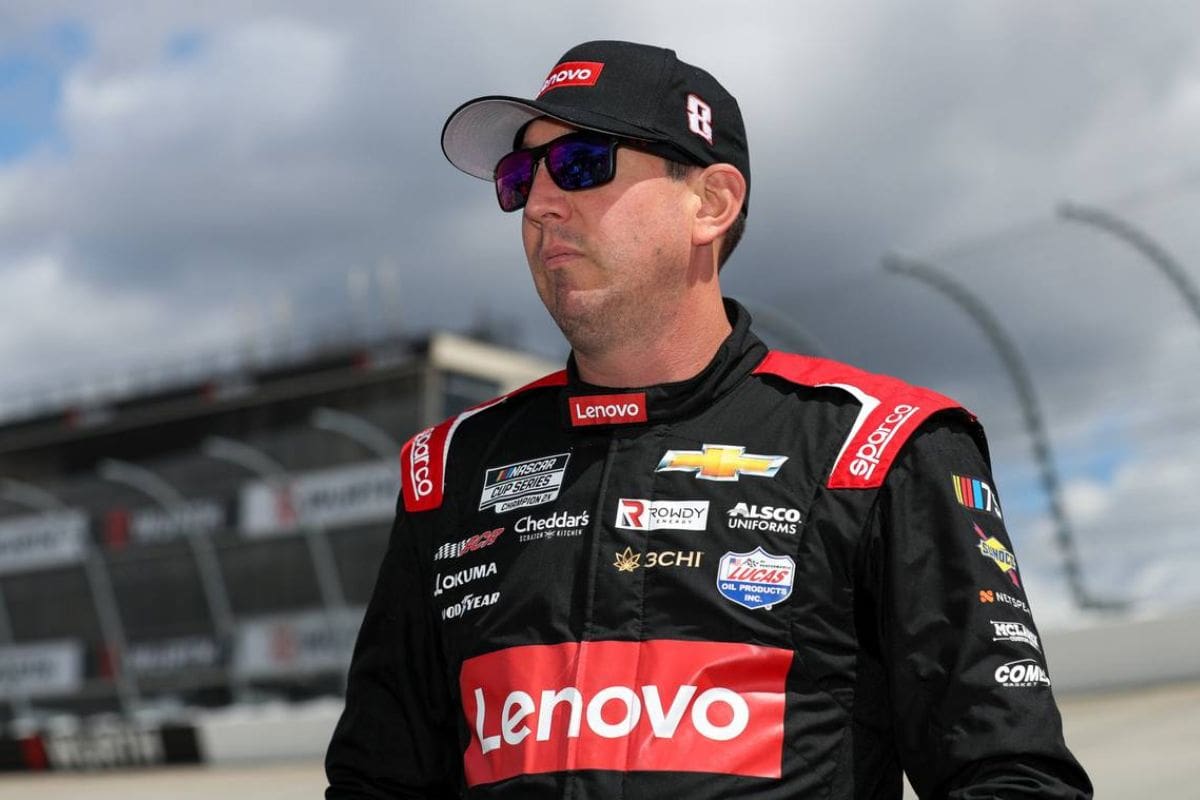Kyle Busch publicly calls out NASCAR to improve its competitive strategies and keep up with other major sports leagues. He stresses the need for fair revenue sharing because big differences in funding can threaten the financial stability of teams. Kyle Busch’s own experiences show how risky it can be when sponsorships change and highlight the urgent need for more diverse ways to make money.
Key Highlights
- Kyle Busch emphasizes the need for NASCAR to improve revenue-sharing practices to align with successful models in the NFL and NBA.
- He advocates for financial stability among teams through equitable revenue distribution to ensure long-term viability for NASCAR.
- Busch’s personal experiences with sponsorship volatility highlight the necessity for diversified revenue streams within the sport.
- The ongoing tensions with teams like 23XI Racing and Front Row Motorsports reveal challenges in NASCAR’s governance and adaptability.
- Busch’s exclusion from media projects like Netflix’s “Full Speed” raises concerns about visibility and representation in NASCAR’s storytelling efforts.
Kyle Busch Speaks Out on NASCAR’s Standoff with 23XI Racing and Front Row Motorsports
In the midst of a rising tension between NASCAR and two prominent racing teams, Kyle Busch has emerged as a voice of reason, articulating the complexities of the current standoff involving 23XI Racing and Front Row Motorsports. Busch’s comments come as these teams, facing challenges with NASCAR’s new charter agreement rules, have taken legal action, filing a preliminary injunction motion on October 24, 2024, with a decisive court hearing scheduled for November 4.
Busch’s insights underscore the multifaceted nature of the conflict, where competitive interests intersect with governance and operational standards. He characterizes NASCAR as a “great family sport,” which inherently accepts disputes as part of its dynamic—much like any familial structure. This analogy serves to highlight the need for collaboration and constructive dialogue amid disagreements.
“NASCAR is a great family sport, and we have these opportunities of supporting one another at a lot of times and through a lot of good and a lot of bad. But as most families do, sometimes they fight.” – Kyle Busch
The involvement of Front Row Motorsports, under the leadership of Bob Jenkins, and the high-profile backing of 23XI Racing, co-owned by basketball legend Michael Jordan, amplifies the stakes of this dispute. The challenge to NASCAR’s charter agreement not only reflects immediate operational concerns but raises broader questions about the sport’s governance and adaptability.
Busch’s articulation of these issues invites stakeholders within NASCAR to engage meaningfully and find resolutions that balance the integrity of the sport with the evolving demands of its teams.
As the hearing approaches, the implications of this standoff will likely resonate far beyond the confines of the courtroom, influencing NASCAR’s future course.
Kyle Busch Advocates for a Fair Revenue Share for NASCAR Teams
Amid the ongoing discussions surrounding NASCAR’s governance and team relations, Kyle Busch has turned his attention to a pressing financial issue: the distribution of revenue among NASCAR teams. Busch’s advocacy focuses particularly on the income generated from television advertising, where he asserts that NASCAR’s revenue-sharing model lags considerably behind that of other major U.S. sports leagues. He argues that the healthier financial landscapes in leagues such as the NFL and NBA are attributable to more equitable revenue sharing practices that empower teams and improve competitive balance.
Reflecting on his own career, Busch highlighted the unstable nature of sponsorship dependency, particularly during his tenure with Joe Gibbs Racing when the withdrawal of M&M’s left him in a vulnerable position without a job until a new sponsor was secured. This experience highlights the volatility that many drivers and teams face in a highly competitive environment.
“Other sports are healthy. They’re a lot healthier than ours. I was sort of the catalyst to this process of what’s going on in the charter agreements. When I was with Joe Gibbs Racing, we lost our main sponsor M&M’s as they pulled out of the sport, and I was left without a job because we couldn’t find a replacement sponsor.” – Kyle Busch
Currently racing for Richard Childress Racing, Busch stresses the critical need for NASCAR to diversify revenue streams beyond traditional sponsorships and boost financial stability across the board.
Without such changes, NASCAR risks falling further behind its counterparts in the broader sports landscape, undermining its long-term viability and competitiveness.
NASCAR’s Netflix Series “Full Speed” Leaves Out Kyle Busch Again
Kyle Busch’s exclusion from the upcoming season of NASCAR’s Netflix documentary series “Full Speed” has sparked substantial conversation among fans and industry insiders alike. This decision raises critical questions about the series’ selection process and its implications for the sport’s visibility in the competitive landscape of motorsport entertainment.
“Full Speed,” modeled after the successful Formula 1 series “Drive to Survive,” offers an intimate look into the lives of NASCAR’s elite drivers. The initial season, which premiered on January 30, 2024, was met with enthusiasm, prompting the announcement of a subsequent season in September 2024.
However, the omission of a prominent figure like Busch—a two-time NASCAR Cup Series champion—signals potential missteps in casting strategies. The lineup for the new season features names such as Ryan Blaney, Kyle Larson, and Denny Hamlin, yet the absence of Busch, who is synonymous with NASCAR’s brand identity, raises eyebrows.
His disappointment, expressed during a recent interview, mirrors sentiments among fans who see his exclusion as a missed opportunity for richer storytelling. Busch’s dynamic personality and competitive spirit could have added depth to the narrative, making the series more engaging.
“No, they didn’t ask me, Maybe it comes down to that you must be in the playoffs to be on video. I don’t know, but I think my story of the 20-year thing would be a pretty good one. But they’re not following along, so you won’t see much of me.” – Kyle Busch
In a landscape where visibility is paramount, particularly in attracting new audiences, NASCAR’s decision to sideline a star driver like Busch could hinder the sport’s comprehensive growth and appeal. As NASCAR seeks to raise itself alongside other sports, it must carefully consider how its media representations align with its objectives for broader engagement.
Kyle Busch’s Ongoing Struggle for Visibility in NASCAR’s Media Productions
While NASCAR’s media productions aim to highlight dynamic narratives within the sport, Busch’s ongoing struggle for visibility underscores a troubling trend in the selection process. Despite his impressive achievements, including three race victories in 2023 and qualification for the playoffs, Busch has remarkably been sidelined in the narrative of “Full Speed.” His exclusion raises questions about the criteria guiding media focus, particularly when his two-decade expedition in NASCAR embodies a compelling story that could resonate with audiences.
Busch himself speculated that his absence might be attributed to playoff standings or other selection criteria, suggesting a potentially narrow view of what constitutes a deserving storyline. This approach seems to prioritize certain drivers while overlooking others who have considerably contributed to the sport’s legacy. The spotlight on playoff dynamics in the initial episodes of “Full Speed” inadvertently diminishes the depth and diversity of narratives available.
Furthermore, as Busch’s team, Richard Childress Racing, faces performance challenges in 2024, the risk of further marginalization looms larger. The exclusion of a prominent figure like Busch from media productions not only undermines his contributions but also risks alienating a segment of the fanbase that values his presence.
News in Brief: Kyle Busch Publicly Calls Out NASCAR
Kyle Busch’s assertions highlight important challenges facing NASCAR in enhancing its competitive stance against other sports. The need for equitable revenue sharing among teams emerges as a crucial factor for sustaining interest and investment in the series.
Additionally, the exclusion of prominent figures like Busch from media productions, such as the Netflix series “Full Speed,” emphasizes ongoing visibility issues within NASCAR. Addressing these concerns is vital for the sport’s growth and broader appeal in a diverse entertainment landscape.
ALSO READ: Kyle Busch Is a Most Talented Driver? His Unmatched Wins Become Irrelevant in Winless Season



